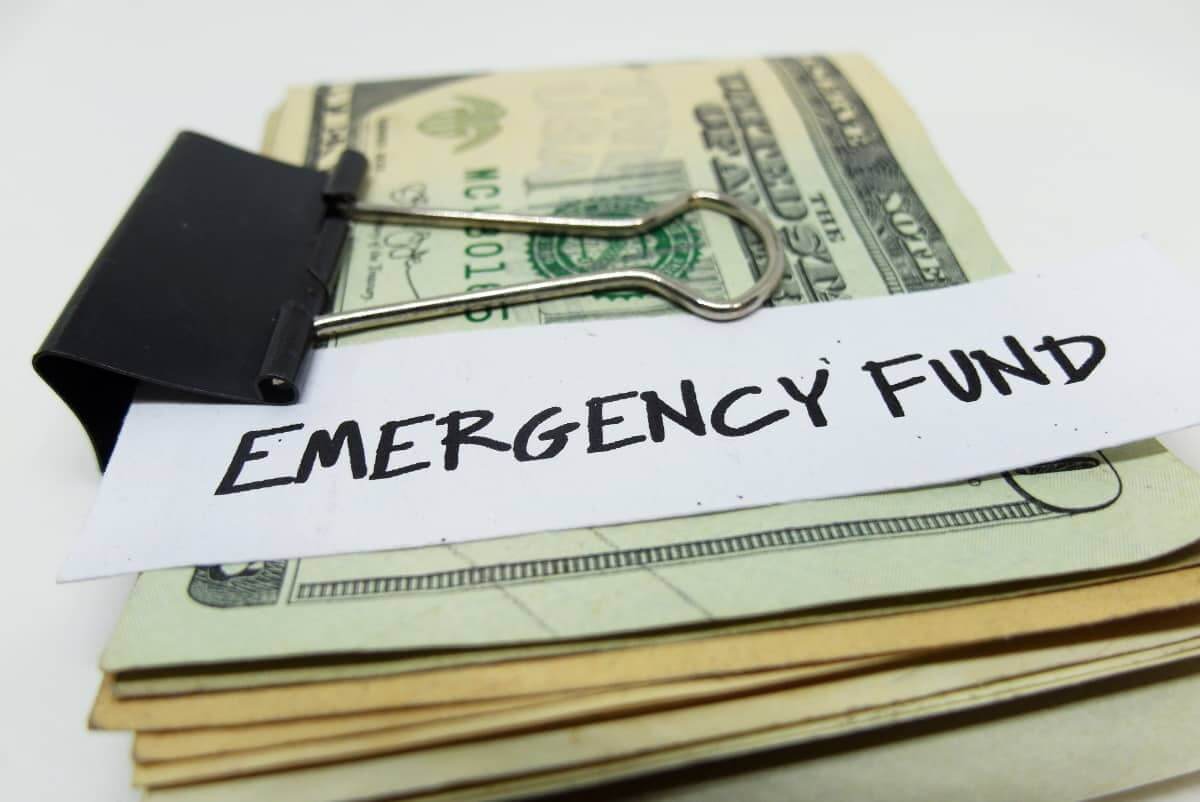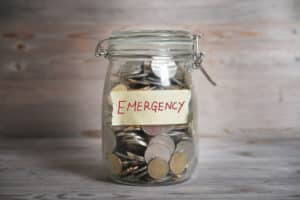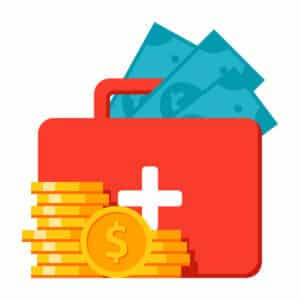
Why you should consider an emergency fund
An emergency fund is essential to your personal finances. You cannot always be in control of what happens in your life. Whether an accident occurs, or an illness takes hold, or you are fired, life can always surprise you. These types of situations could leave you in precarious situations if you are not careful. This is why it is essential to take control preemptively, so as not to be caught unawares. For this, it is best to have highly liquid assets left over at all times. You will also need to rely less on risky loans and credit cards in times of hardship, which will save you money in the long run.
Your emergency fund should, at the very least, be able to cover your living expenses for a few months, up to half a year. Of course, the larger you can make your fund, the better, but this sort of timescale is a good standard. Your living expenses will, of course, vary according to a few factors. For example, how many people do you live with? Does one of them work as well? How much is your rent? What sort of lifestyle are you used to? You will have to figure out your situation on your own.
Emergency fund assets
So first of all, your assets for your emergency fund, as we have said, should be highly liquid. You do not want to risk deteriorating their value or losing them, as they are your backup after all. So, you should not put them in investments like stocks or bonds. The best option is generally to put them in a run of the mill checking account in a traditional bank. This option will obviously be quite safe, and will practically ensure your fund will survive. However, this safety does come at a cost. Interest rates for these kinds of accounts are quite low, tending towards 2%. So, they basically follow inflation. Therefore, there is not much opportunity for growth for this kind of fund.

As a result, we would recommend not putting too much of your funds towards them, and directing the rest of your money elsewhere. As we said, it is strictly for emergencies.
There are, fortunately, a few relatively safe alternatives for you to consider if you do want to make some profits.
Savings accounts
This seems like the most obvious choice for your emergency funds. However, they do come in many shapes and sizes. Their interest rates can vary highly, and you will have to pick out high-yield accounts if you want to ensure profits. Many savings accounts can also be quite restrictive when it comes to transactions. This is why we recommend that you find an account that will also allow you to transfer funds to a checking account easily. More importantly, you should make sure that these rates and conditions are not temporary. Banks like to do promotions of some of their features to hook newcomers in, but follow it with less favourable terms.
Money market accounts
A money market account pays a higher interest rate than your everyday checking account. A proper money market account should be under federal insurance protection. However, these advantages do mean that banks require a bit more from you. For one, you have considerably less power over your transactions for your emergency fund. For another, you may have to pay some fees if you are not careful. If your balance falls under a certain limit, many banks will charge you.
Certificates of Deposit
Banks often offer these with the promise of higher interest rates. In exchange, you will have to make large deposits without touching those funds for a considerable time. This can be on the timescale of years. Therefore, if you are considering this type of account, you will have to consider it well in advance. You will have to make sure that you are financially solvent at the time. Otherwise, your deposit will be for nothing. If you do decide to withdraw early, you will have to pay a penalty. This fee can be so high, so that you may end up with less funds than you started with. Therefore, it is essential that you are confident in this sort of investment before you initiate it.
So most of these options will allow you to make greater profits, but you will overall have fewer options in dealing with your emergency funds. Restrictions to your account can actually be a good thing, however. It can dissuade you from making unnecessary withdrawals and incentives you to be more prudent in spending.
When to contribute to your emergency fund
Once you have set up an account, you will have to have a schedule for you to follow for deposits.
The best method is to consider your situation at the end of the month and act accordingly. Once you receive your salary, you should be able to look ahead for the next few weeks and consider what you need. After this, you can decide how much you want to deposit into your account. Generally, we recommend that you look ahead towards the next three months.

An additional recommendation is to look at your monthly balance and see where you can save up space. You should always be looking for more money to put towards your emergency fund if you can. For example, do not pay for unnecessary luxuries. While small luxuries are perfectly acceptable, large investments like cars or houses must be carefully considered. Consider if you even need that car. Maybe you already have the car you need and are looking for something more prestigious. If you go out to eat almost daily, it would probably be best to try cooking at home more often. The savings you can make by doing this can be surprisingly high if you do it carefully.
Try to use your tax refund as a relief. Do not spend your refund right away frivolously. Take advantage of every opportunity presented to you. Therefore, the best thing to do is to put it aside for a rainy day.
-
Support
-
Platform
-
Spread
-
Trading Instrument




